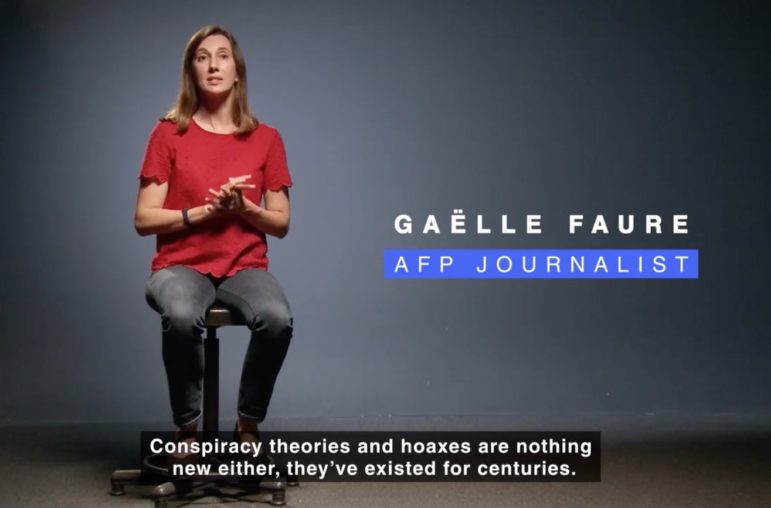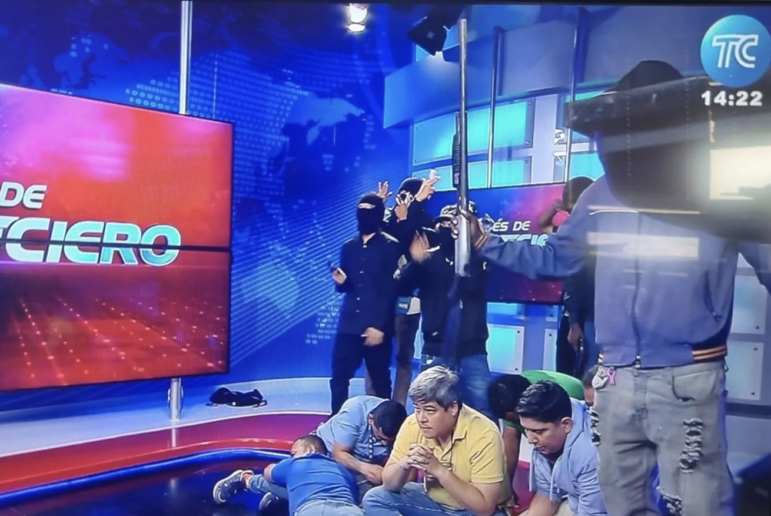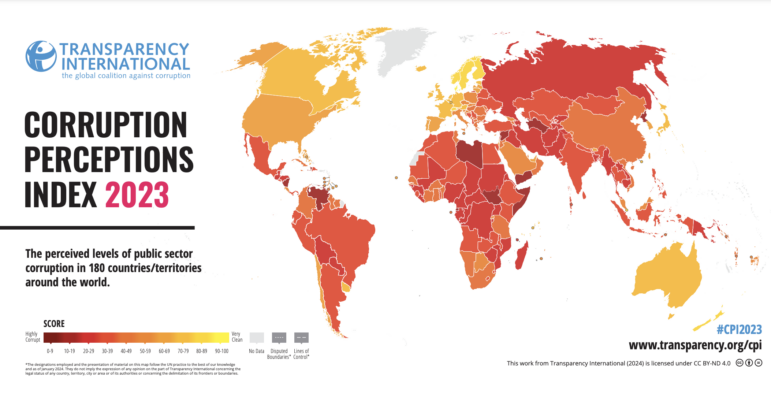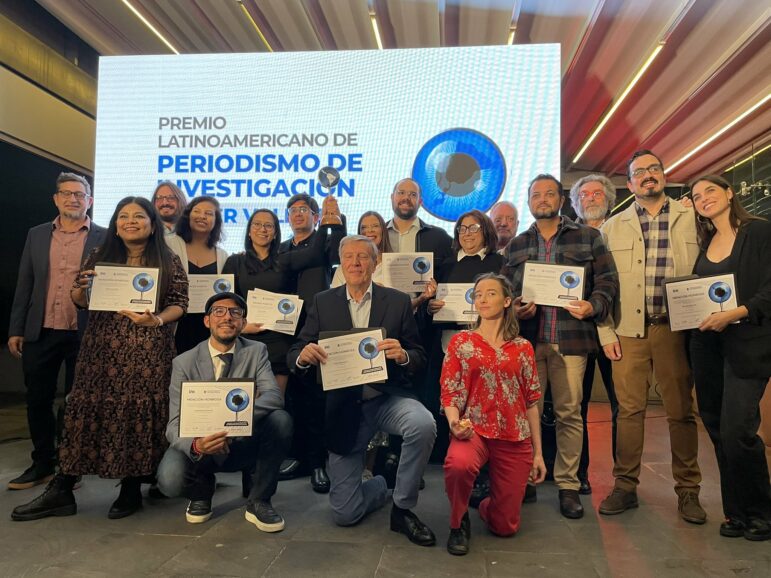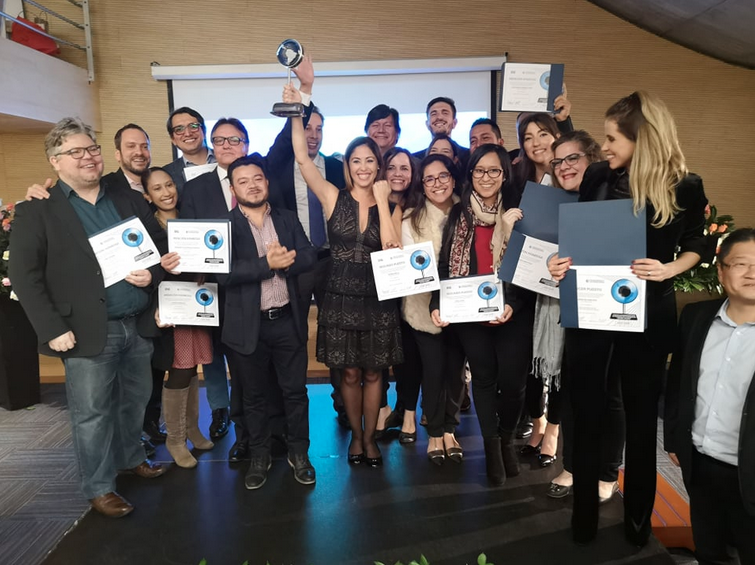

Latin American Investigations Honored in Bogotá

Winners of the Javier Valdez Latin American Award for Investigative Journalism in Bogotá, Colombia. Image: Courtesy of COLPIN.
Winners of the Javier Valdez Latin American Award for Investigative Journalism were honored during the 2018 Latin American Conference of Investigative Journalism (COLPIN), held November 8-11 in Bogota, Colombia.
First place went to the collaborative report on Hurricane Maria, “Los Muertos de María” (Maria’s Dead). The Center for Investigative Journalism of Puerto Rico, with support from the Associated Press and Quartz, worked for months on the winning investigation, traveling all over the island, facing a lack of transparency from officials over statistics and information on victims of the cyclone.

Omaya Sosa receives award for investigating the true toll of Hurricane Maria on Puerto Ricans. Image: COLPIN
CPI’s Omaya Sosa, Jeniffer Wiscovitch and Carla Minet; Quartz’s Ana Campoy and YouYou Zhou; and AP’s Michael Weissenstein received the award for their work on the project.
Second place was a tie between two investigations from Peru and Argentina: “Caso Lava Juez” (Case of Judicial Wash) from Peru’s IDL-Reporters and “Los Cuadernos de la Corrupción” (Notebooks of Corruption) by Diego Cabot of Argentina’s La Nación. The alleged acts of corruption that each of these investigations revealed showcased a before and after in the political and judicial realities in Peru and Argentina.
Following a meticulous analysis, IDL-Reporteros also published a series of leaked audio recordings of telephone conversations among supreme court judges, lawyers of defendants, congressmen, politicians, businessmen, and others. The audio recordings revealed irregularities and alleged corruption at the highest levels of Peruvian justice system and politics.
Diego Cabot’s investigation was based on a series of notebooks that he received, with 10 years of annotations of incriminating acts in business and politics in Argentina.
Third place went to “Escándalo en la Gimnasia” (Gymnastics Scandal) by Joanna de Assis, of Brazil’s TV Globo, and the members of her team, Wagner Luis Susuki, Jae Ho Ahn and Mauricio Trinidade y Oliveira. The investigation uncovered one of the biggest scandals of sexual harassment in Brazil, revealing 42 cases of alleged sexual abuse by the former coach of Brazil’s Olympic gymnastics team, Fernando de Carvalho Lopes.
Thanks to sponsorship from the Organization of American States, UNESCO, the World Bank, Nordic countries and the Open Society Institute, the first prize winners received $10,000, and second and third place winners received $5,000 each.
The jury was composed of Lise Olsen (United States), Ewald Scharfenberg (Venezuela), Giannina Segnini (Costa Rica), Fernando Rodrigues (Brazil) and Santiago O’Donnell (Argentina).
Twelve investigations also received honorable mention:
- Argentina – “Jueces corruptos, impunidad garantizada” (Corrupt Judges, Guaranteed Impunity) / Iván Ruiz, Maia Jastreblansky and Hugo Alconada Mon, La Nación
- Brazil – “Tropa de Enfrentamientos” (Troop of Clashes) / Fábio Teixeira and Igor Mello, O Globo
- Colombia – “El escándalo del dinero camuflado en las Fuerzas Armadas” (The Scandal of Money Camouflaged in the Armed Forces) / Ricardo Calderón, Semana Magazine
- Colombia – “Venezuela, crimen sin frontera” (Venezuela, Crime Without a Border)/ Hugo Cárdenas, El País
- Ecuador – “Julian Assange y una trama de espionaje desde Londres” (Julian Assange and an Espionage Plot from London) / Fernando Villavicencio, Dan Collyns and Cristina Solórzano, of Plan V, Mil Hojas and Periodismo de Investigación
- Ecuador – “Las conexiones secretas de Odebrecht” (The Secret Connections of Odebrecht) / Arturo Torres Ramírez and María Belén Arroyo, Código Vidrio
- Guatemala – “Así nos espía el Gobierno” (This is How the Government Spies on Us) / Luis Ángel Sas and Coralia Orantes, Nuestro Diario
- Mexico – “La red fantasma que financió la campaña presidencial de Enrique Peña Nieto” (The Ghost Network that Financed the Presidential Campaign of Enrique Peña Nieto) / Raúl Olmos, Valeria Durán, Arturo Ángel and Francisco Sandoval, Animal Político and Mexicanos contra la Corrupción y la Impunidad
- Paraguay – “Políticos manejan el sistema judicial extorsionando a fiscales y jueces” (Politicians Handle the Judicial System by Extorting Prosecutors and Judges) / Mabel Rehnfeldt, ABC Color and ABC Cardinal
- Peru – “Reynaldo Naranjo: Una historia de terror en París” (Reynaldo Naranjo: A History of Terror in Paris) / Gabriela Wiener and Diego Salazar, Ojo Público
- Venezuela – “Detrás de los CLAP” (Behind the CLAP) / Roberto Deniz, Patricia Marcano and Claudia Solera, Armando.Info
- Venezuela – “OLP: La máscara del terror oficial” (OLP: The Mask of Official Terror) / Ronna Rísquez, Lisseth Boon, Lorena Meléndez G, Runrun.es
The Latin American investigative journalism awards, which receive about 200 entries annually, were created by GIJN member Instituto Prensa y Sociedad (@IPYS) in 2000. From the beginning, the Institute’s objective was to motivate journalistic work on matters of public interest in Latin American and Caribbean countries. Since the first edition in 2001, the effort has been supported by Transparency International and the Open Society Institute.
Initially named the “Latin American Award for the Best Journalistic Investigation of a Corruption Case,” the contest became the “Latin American Award for Investigative Journalism” in 2009, hosted by COLPIN and organized by IPYS. In 2018, the contest became the “Javier Valdez Latin American Award for Investigative Journalism,” in honor of the renowned Mexican investigative journalist who covered drug trafficking issues and who was murdered on May 15, 2017, allegedly by organized crime syndicates.
This story was originally posted on Journalism in the Americas’ blog from the Knight Center for Journalism in the Americas, and is reproduced here with permission.
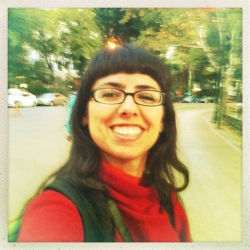 Paola Nalvarte is a Peruvian journalist and documentary photographer living in Austin, Texas, who focuses on covering the Andes region. In Peru, Paola worked in the Lima office of Italian news agency ANSA, on the economic news desk of the daily Expreso, and for ten years has worked on various editorial projects doing picture editing and research for one of the world’s oldest Spanish-language papers, Peru’s El Comercio.
Paola Nalvarte is a Peruvian journalist and documentary photographer living in Austin, Texas, who focuses on covering the Andes region. In Peru, Paola worked in the Lima office of Italian news agency ANSA, on the economic news desk of the daily Expreso, and for ten years has worked on various editorial projects doing picture editing and research for one of the world’s oldest Spanish-language papers, Peru’s El Comercio.




